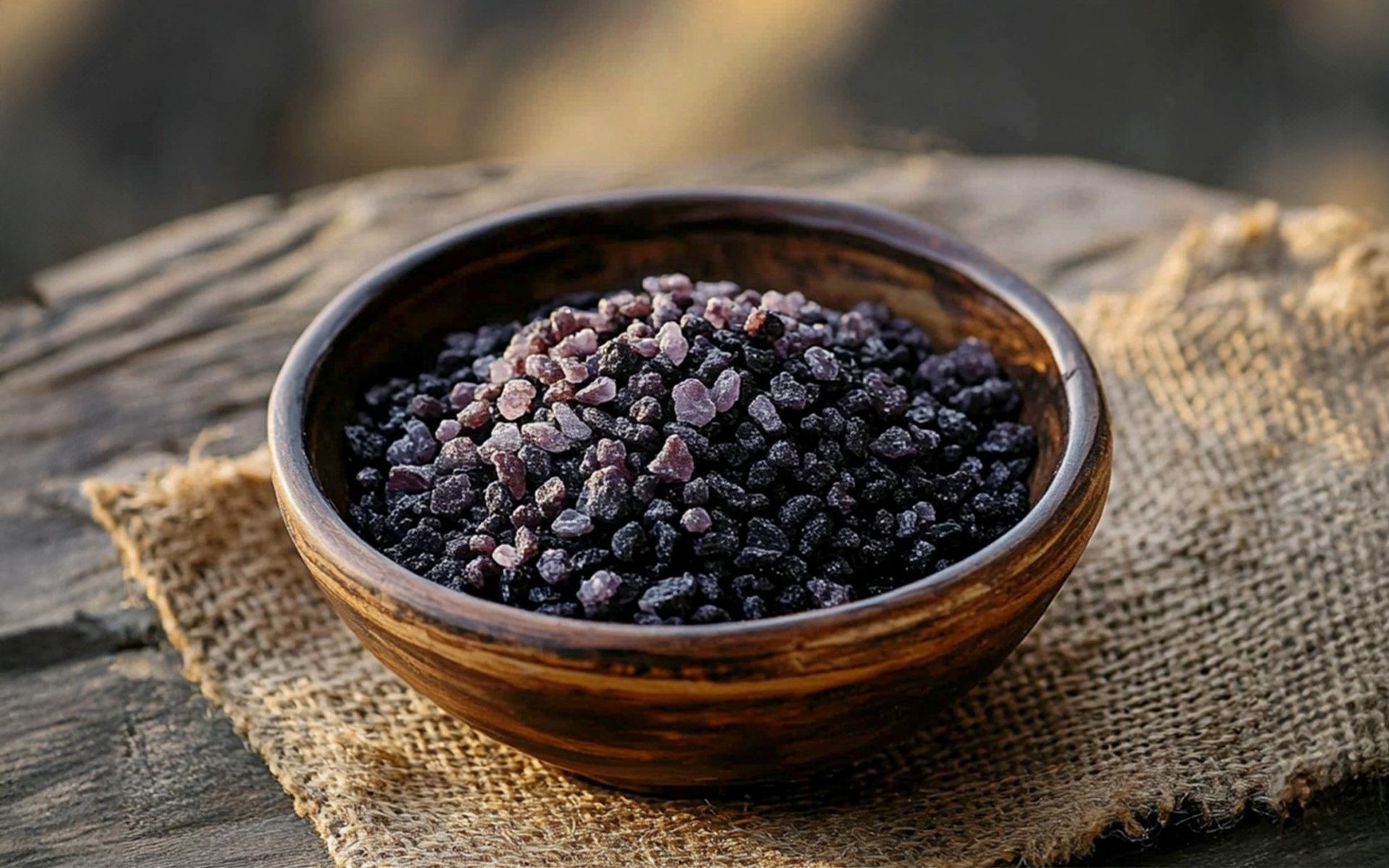Black Salt

Have you ever heard of Black Salt or Kala Namak? This dark, distinctive rock salt from the Himalayan region is more than just a culinary seasoning. It's an ingredient highly revered in the ancient Ayurvedic system of the Indian subcontinent (one of the world's oldest holistic healing systems), known for its unique properties and flavor. Today, Rimping Supermarket invites you to delve into the fascinating story behind this intriguing salt!
What is Black Salt? Origins and Unique Characteristics
Black Salt, or "Kala Namak" in Hindi, is a type of rock salt characterized by its dark grey to black color. It originates primarily from the Himalayan regions, especially in India, Pakistan, and Nepal.
The distinctive dark color of black salt is not due to impurities but results from the natural accumulation of various minerals, such as iron, sulfur, potassium, magnesium, calcium, and others. When these minerals are exposed to air, oxidation reactions occur, causing the salt to progressively darken. These minerals are also crucial contributors to black salt's unique flavor and properties, setting it apart from regular salt.
Salt sources from the Himalayan region are renowned for their rich mineral content, formed millions of years ago from the evaporation of ancient seas. These salts are later mined and processed to produce various forms of salt, including black salt.
Production Process and Distinctive Flavor
The production process of black salt is what truly gives it its unique character. The salt, once mined, is subjected to high-heat firing in a kiln, reaching temperatures of approximately 815 degrees Celsius (1500°F). During this firing process, the salt is traditionally heated with herbs, seeds, and tree barks. When exposed to this intense heat, the sulfur compounds and other minerals undergo chemical changes, imparting black salt its characteristic taste and aroma. It is said to have a complex flavor and smell reminiscent of hard-boiled eggs.
Significant Role in Ayurveda and History
The first recorded use of black salt is closely linked to Ayurveda in the Indian subcontinent, one of the world's oldest holistic healing systems. Ancient practitioners discovered that black salt offered several benefits, including aiding digestion, relieving bloating, and balancing the body's energies. This made black salt an essential component in Ayurvedic therapies.
As trade routes expanded, the popularity of black salt spread beyond its native regions. It became a valued commodity in the Middle East, and ancient Greeks and Romans not only used it for medicinal purposes but also as a culinary seasoning, frequently incorporating it into pickling and meat preservation.
Beyond its medicinal and culinary roles, in South Asian culture, black salt also holds significant symbolic importance in religious and cultural rituals. For instance, in Hindu ceremonies, black salt is often used in offerings to deities as a symbol of purity and life-sustaining properties.
Black Salt in Modern Times: Culinary Popularity
In modern times, black salt has increasingly found its way into general culinary use. Its pungent, distinct flavor, reminiscent of hard-boiled eggs, has made it a particularly popular seasoning in vegan and vegetarian cuisine. It's often used to mimic the taste of eggs in dishes such as scrambled tofu, vegan omelets, or other recipes aiming for an egg-like flavor without using actual eggs.
Black salt's versatility has also contributed to its growing popularity in modern gastronomy. Many chefs experiment with black salt in various recipes, and today it's even used in cocktails and desserts to add a unique and intriguing dimension of flavor.
Cautions and Unproven Benefits
However, while black salt is highly esteemed in traditional medicine, modern scientific research specifically on its health benefits remains limited. Although black salt may offer some advantages due to its diverse mineral content, it should be consumed in moderation, just like any other salt, to avoid potential health risks.
If you're looking to add a new dimension of flavor to your dishes, especially if you enjoy vegan cuisine or are keen to experiment with unique tastes, black salt, or Kala Namak, might just be the ingredient you'll fall in love with.
You can find Black Salt (Kala Namak) and other fascinating imported ingredients for your cooking and well-being at all Rimping Supermarket branches.


